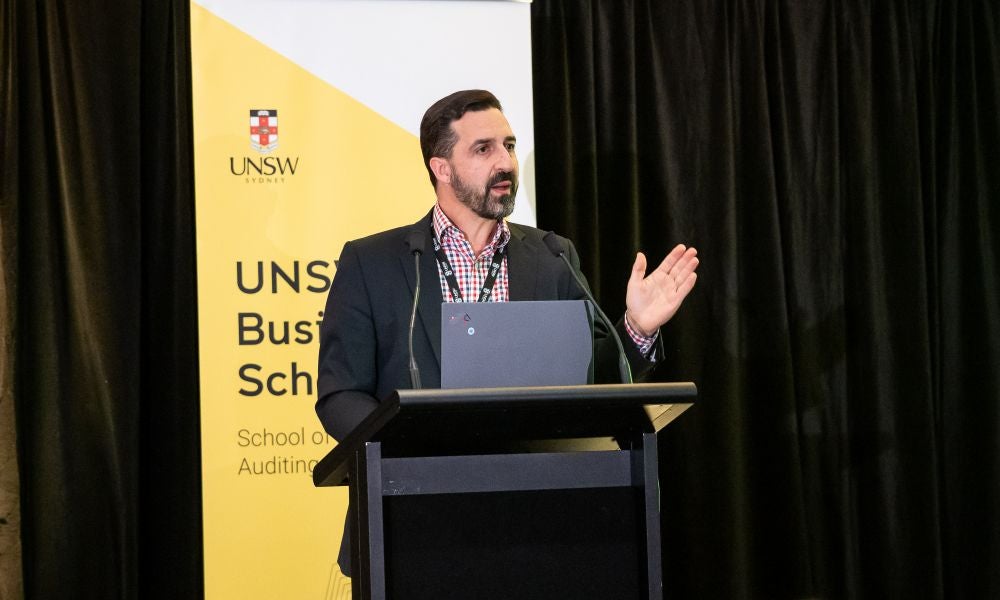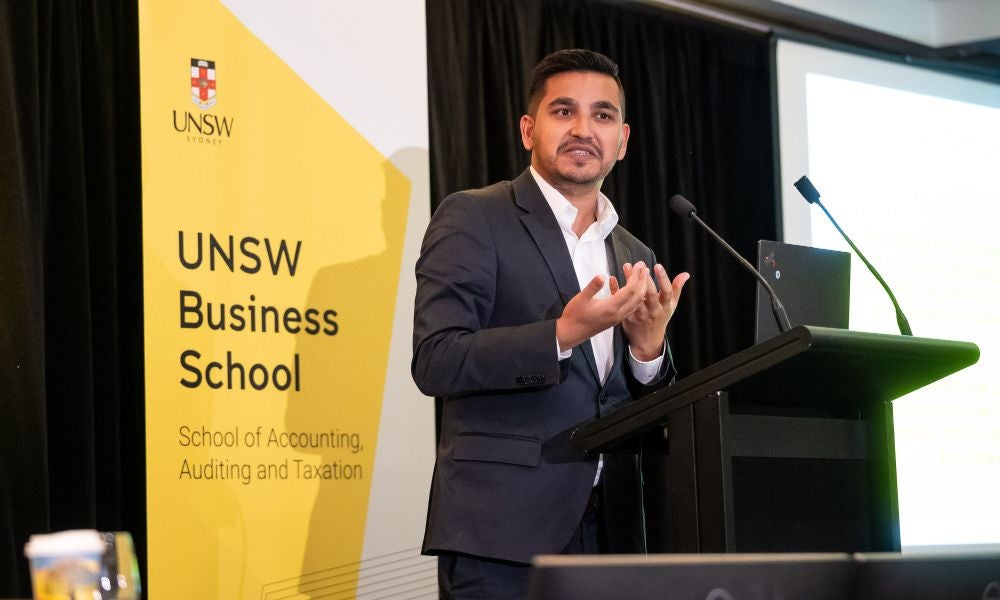How AI is reshaping the role of tax professionals
Artificial intelligence is reshaping how tax professionals work, streamlining workflows, automating preparation, and prompting questions about the future of the profession
As generative AI and other advanced AI tools become embedded in everyday tax practice, accounting and tax professionals are being challenged to rethink their values, skillsets, and roles in an industry undergoing rapid change.
No longer limited to simple data entry or tax software automation, AI systems today have the ability to conduct complex tax research, simulate decision-making scenarios, and support real-time pricing, forecasting, and tax planning strategies. From Certified Public Accountants (CPAs) in small practices to global accounting firms, professionals are increasingly integrating AI technology into their tax workflows to boost efficiency, reduce errors, and improve client communication.
But this transformation also raises key questions about regulatory oversight, data security, and the ethical use of machine learning algorithms. As the line between automation and advisory work blurs, what role will human expertise play in the future of tax? And how should universities and employers prepare the next generation of tax experts to navigate an AI-enhanced world?

At the 2025 International ATAX Conference hosted by UNSW Business School, Professor Paul Andon, Senior Deputy Dean (Education and Student Experience), and Professor of Practice Fahim Khondaker, Partner of Data and AI at BDO, explored the opportunities and limitations of AI in tax and accounting, and how these professions are changing as a result.
“We need to be thinking about how we train the future professionals of all disciplines, including the tax profession, because AI is going to take over so much of what we currently do,” said Prof. Andon. “We believe we have some views on the path that lies ahead. But, of course, that is foggy. We are all trying to think through what AI will do to us in our professions, in our daily lives, and in our work going forward."
AI tax tools are already changing how professionals work
AI is more than just a trend – it’s a transformative technology with broad implications for the accounting industry. “In many respects, AI is going to be the next great catalysing GPT,” said Prof. Andon. “By GPT, I don't mean what GPT stands for in relation to ChatGPT [a generative pre-trained transformer], but as a general-purpose technology.”
“We've seen throughout history that major general-purpose technologies have huge applications and a wide variety of usage, and they fundamentally change how we live, how we work, and how we generate economic growth and value globally.”

“It's going to fundamentally reform all manner of knowledge work. It is already creating a shift in agency… it has raised the bar for human contribution to knowledge work because lots of the mundane, and even not-so-mundane, work can now be picked up and done pretty well by artificial intelligence. And it means that, as a result, we need to think clearly about what the distinctive roles are of people versus machines in doing things like tax work, accounting work and other areas of professional activity.”
What AI can and can’t do
Generative AI platforms such as ChatGPT are emerging as digital tax assistants, able to respond to natural language prompts with technically sound and contextualised outputs. At the conference, for example, more than half of attendees reported already using AI tools in their roles – whether for tax research, reviewing legislation, automating tasks, or improving decision-making.
Prof. Khondaker demonstrated AI-generated responses to queries on tax deductibility, cross-border acquisition structures, and capital gains tax policy – tasks he once handled manually. “These are the kinds of things I did as a graduate, and we'd charge clients fees for that,” he said. “The AI not only provided technically sound responses – it gave legal frameworks, tax rulings, commercial risks, and even policy rebuttals.”
These examples reflect how AI can perform many routine and advisory tasks with impressive detail. But Khondaker stressed that human oversight remains essential. “Somebody still has to make a decision from the options generated. Somebody has to go ahead and structure and execute the deal. Somebody has to go and advocate for that policy position. Somebody has to do all of that still.”
The 2025 International ATAX Conference, hosted by UNSW Business School
A key concern, however, is how future professionals will gain the experience needed for such validation. “Right now, we do all of the yellow boxes [referring to a graph] based on our knowledge of the last 15 years. The future graduate – where is their knowledge going to come from to do this validation? And we don’t know that. That’s what we’re all grappling with at the moment.”
As Prof. Khondaker explained: “We need to start asking ourselves: what are the workflows of the future? Where do we insert ourselves in the loop? Because the tax assistant of tomorrow isn't a junior team member – it’s an algorithm.”
While AI can process data, manage workflows, and enhance reporting, it requires professionals to provide judgement, context, and ethical consideration, especially when dealing with grey areas in tax law and compliance. “The error rate [of AI] is decreasing significantly. That fear of hallucination, it's real, don't get me wrong. I'm not saying that AI will never hallucinate, and AI companies will always disclaim the use of their technology anyway. So there will always be a role for someone to carry the risk of validation.”
Preparing the next generation of tax professionals
To meet the profession’s evolving demands, UNSW Business School is redesigning its accounting and tax programs to prepare students for a more automated future. “Going out into the workforce simply with a deep knowledge of accounting and taxation and basically nuts and bolts of that isn’t going to be good enough anymore in an AI world,” said Prof. Andon.
“We started by thinking about how we define the [accounting and taxation] expertise. And I use the word accounting generally. The expertise in accounting is about how you understand and run a successful business. There are two elements: one is the expertise about how it reveals your business’s vital signs – much like you go to a doctor to understand the vital signs of your physical health. Because of that vital information, you understand better than everyone else; accounting powers every decision you make.”
Subscribe to BusinessThink for the latest research, analysis and insights from UNSW Business School
He explained how the school is embedding this thinking into course structures: “We’ve gone down to individual courses and thought about how we’re actually reframing the value proposition for students in each course… and how do we change and restructure individual courses to deliver on that value proposition?”
With global demand for skilled accounting professionals outpacing supply, the speakers stressed the urgency of building AI literacy into foundational tax education – ensuring tomorrow’s graduates can thrive in an increasingly automated world.
